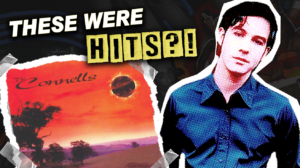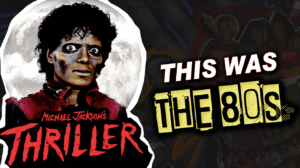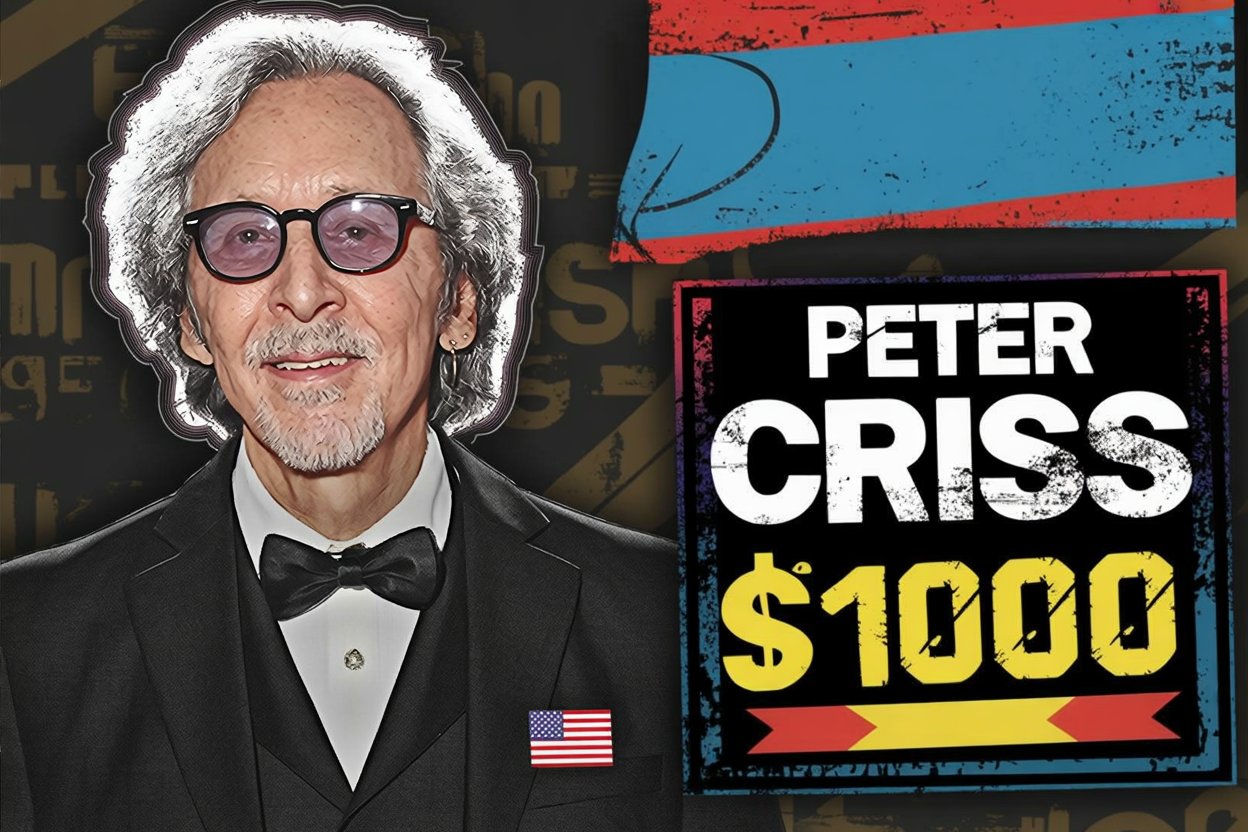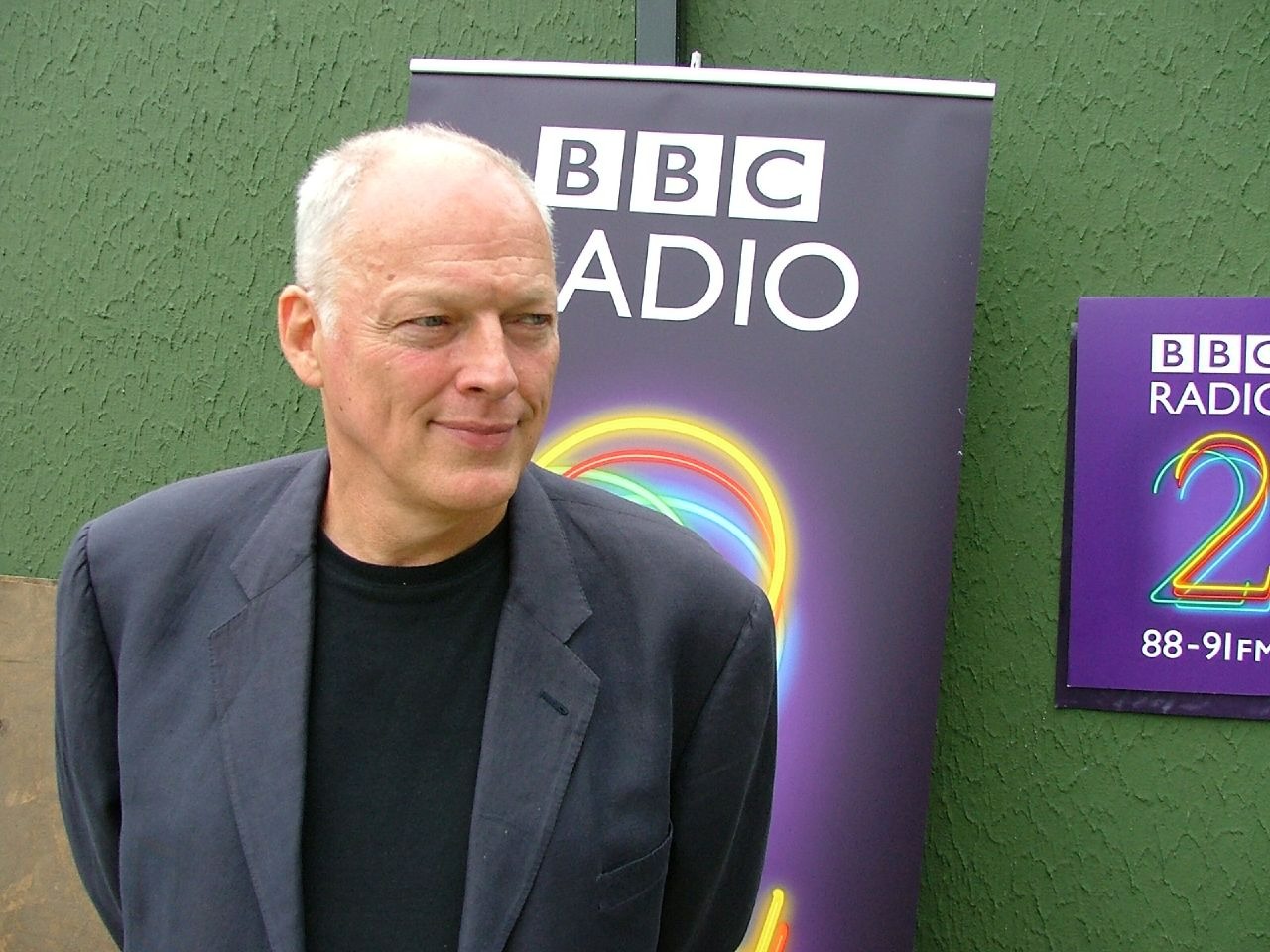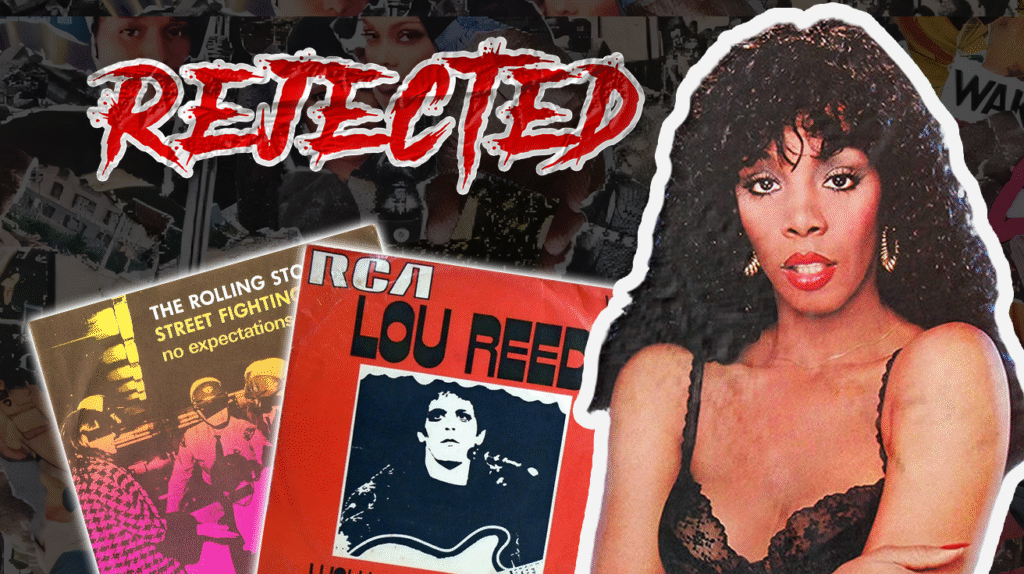
Music reshapes culture. When artists push boundaries, they face more than silence. They spark cultural firestorms that expose our hidden fears.
Banned songs open talks about sex, politics, and identity that power players try to shut down. Like finding a secret door in a wall, these tracks let us peek at society’s real self.
Remember how adults hated your music? Add government intervention, and you’ve got the recipe for history’s most significant songs. These were truth bombs dropped into sacred spaces.
13. Strange Fruit – Billie Holiday (1939)
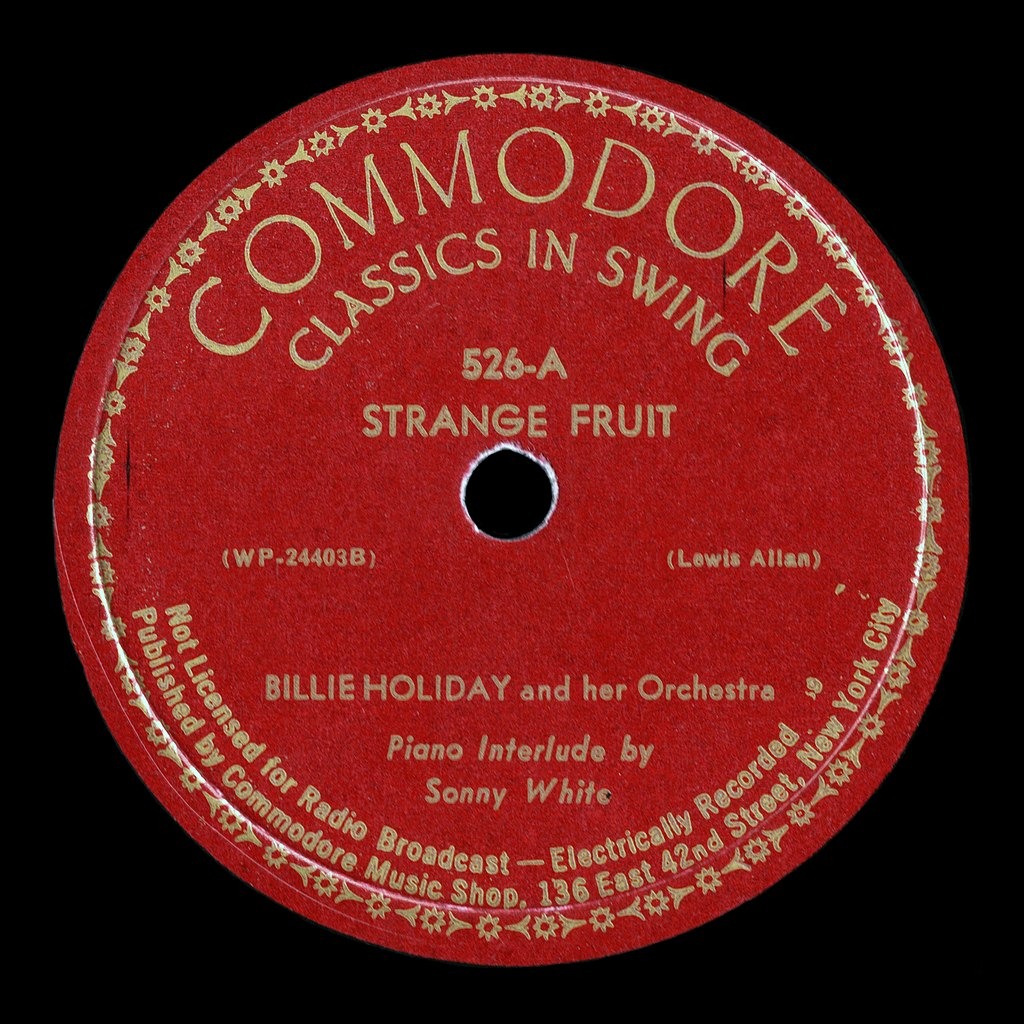
Holiday performed more than a song—she testified against America’s racist violence. Radio stations ran from her lynching portrayal. The FBI monitored her performances like she was armed with more than just her voice.
Her strength in singing this requiem for murdered Black Americans, despite threats, makes her more than an artist. Holiday forced white America to confront horrors it wanted to forget.
12. Love to Love You Baby – Donna Summer (1975)
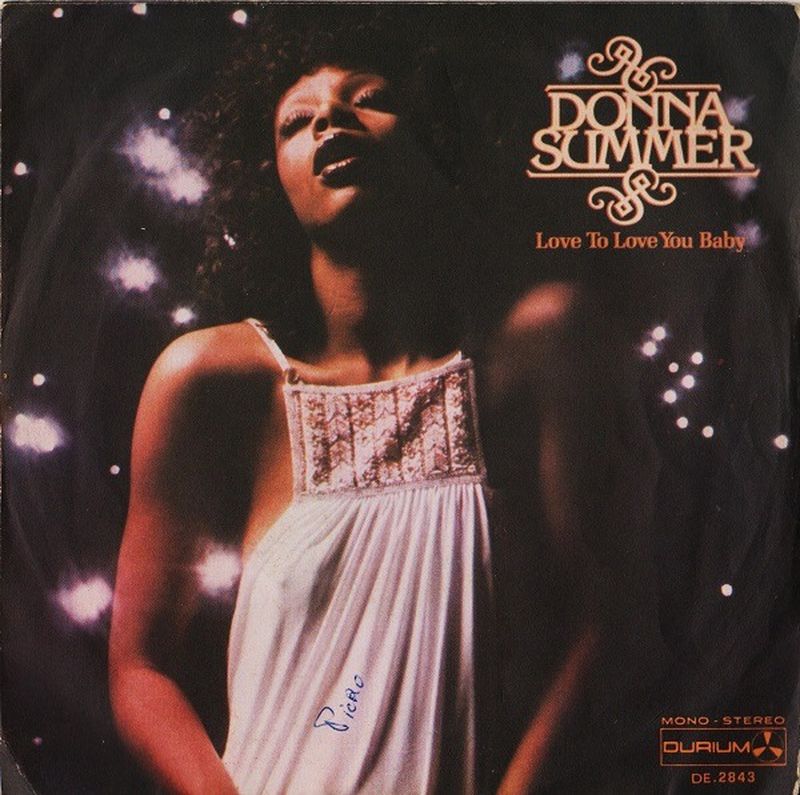
Summer and Moroder created a pleasure anthem that made radio suits squirm. Her 17-minute disco celebration treated female desire as worthy of airtime. Stations playing men singing about conquest suddenly found “standards” when women expressed desire.
This track turned nightclubs into freedom zones. Summer’s banned song helped normalize women’s sexual agency in pop culture. The moral panic seems silly to today’s TikTok generation.
11. The Pill – Loretta Lynn (1975)
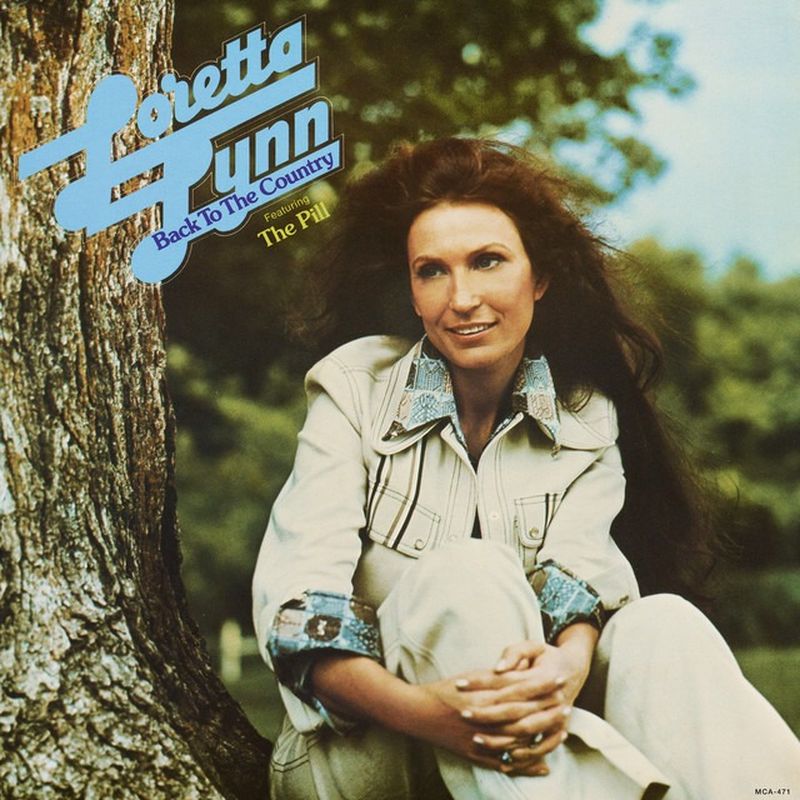
Lynn sneaked birth control talk into country music, and rural radio lost its mind. Her straight talk about reproductive freedom landed in conservative America like a meteor. Male DJs who played songs about cheating suddenly found morals.
The song became secret code among women tired of endless pregnancies. “The Pill” gave voice to those whose reproductive choices had been controlled by men. Lynn packaged feminism in a country wrapper.
10. Imagine – John Lennon (1971)
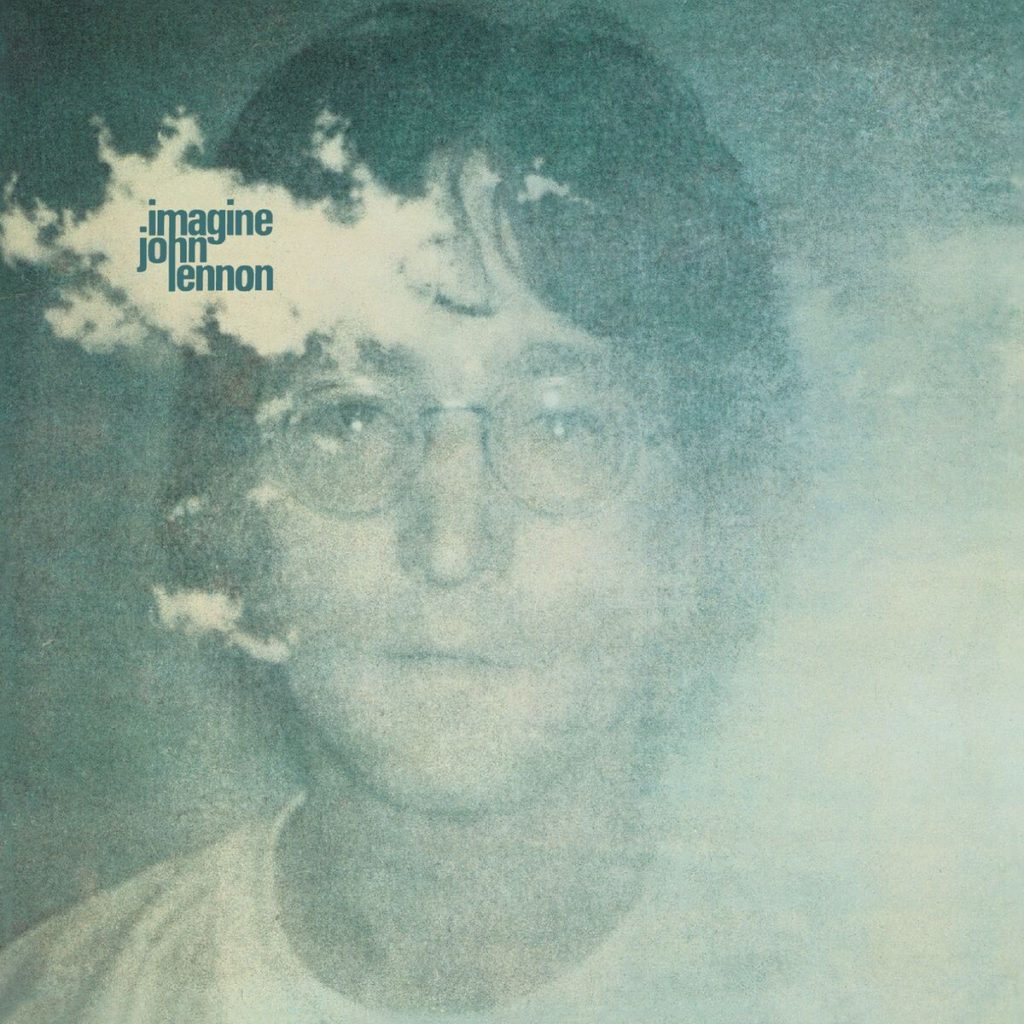
Nothing scares power systems like suggesting we don’t need them. Lennon’s dream about no borders, religion, or possessions hit like dropping kale chips at a gun show. Broadcasters banned this peace anthem because it threatened their worldview.
The funny part? This track went from banned manifesto to global peace song faster than Instagram trends change. The same tune that upset religious groups now plays at their events.
9. Walk on the Wild Side – Lou Reed (1972)
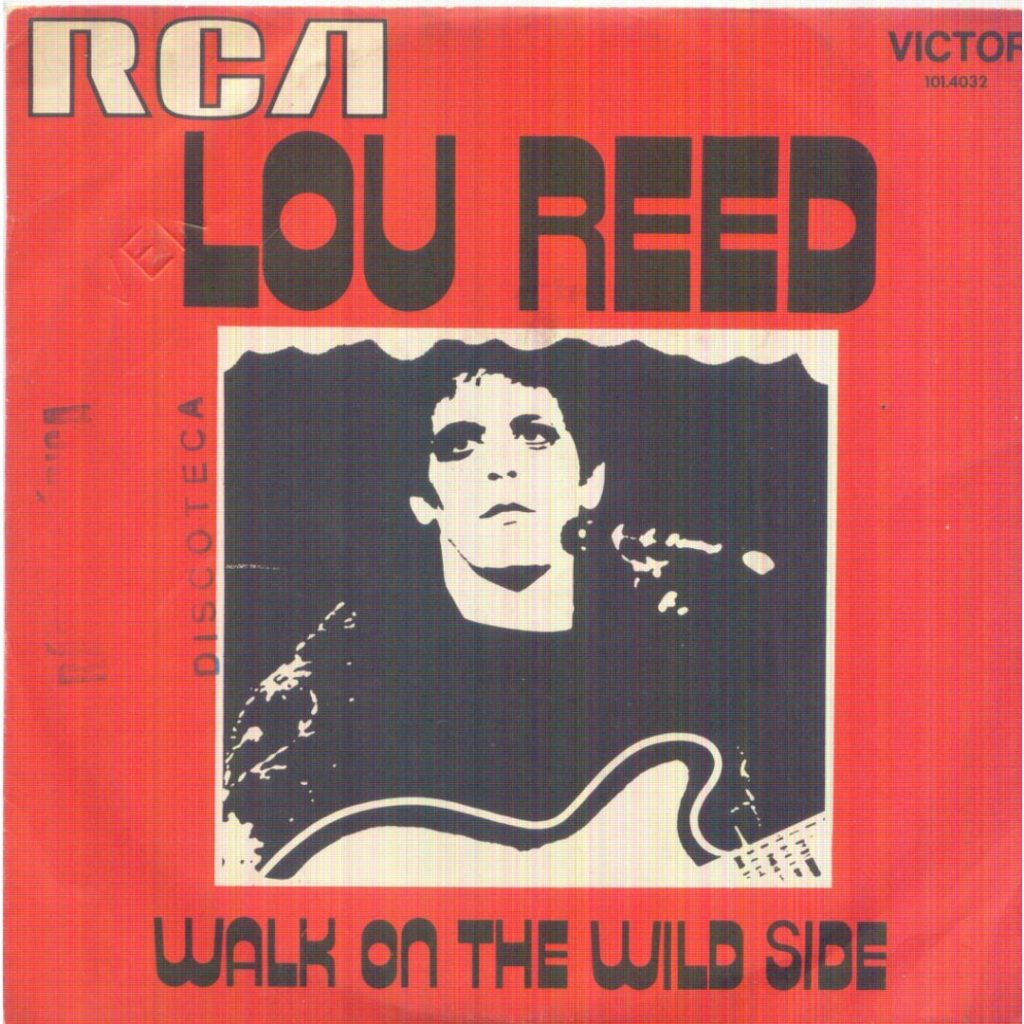
Reed didn’t just visit taboo territory—he moved in. His casual story about Warhol’s crew with transgender characters shocked 1970s radio. Stations lost it over gender transition references and barely knew what parts to censor.
This track became a lifeline for outcasts when finding your tribe meant real searching. Reed’s cool delivery normalized experiences that mainstream culture wanted invisible.
8. War – Edwin Starr (1970)
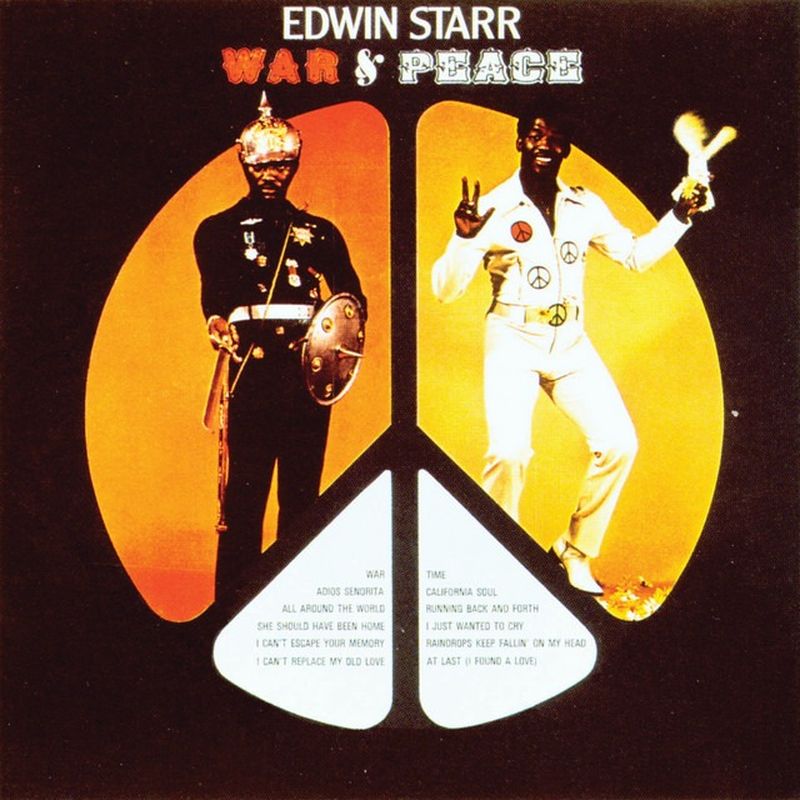
Starr delivered the most blunt anti-war statement ever, and hawks got mad. Released during Vietnam’s bloodiest period, stations labeled it unpatriotic. The song stripped away glory talk to show war’s basic truth.
Its message—war hurts people—still bothers those who profit from conflict. This track makes us ask who wins and who loses in war. It stays relevant with each new military action.
7. Brown Sugar – The Rolling Stones (1971)
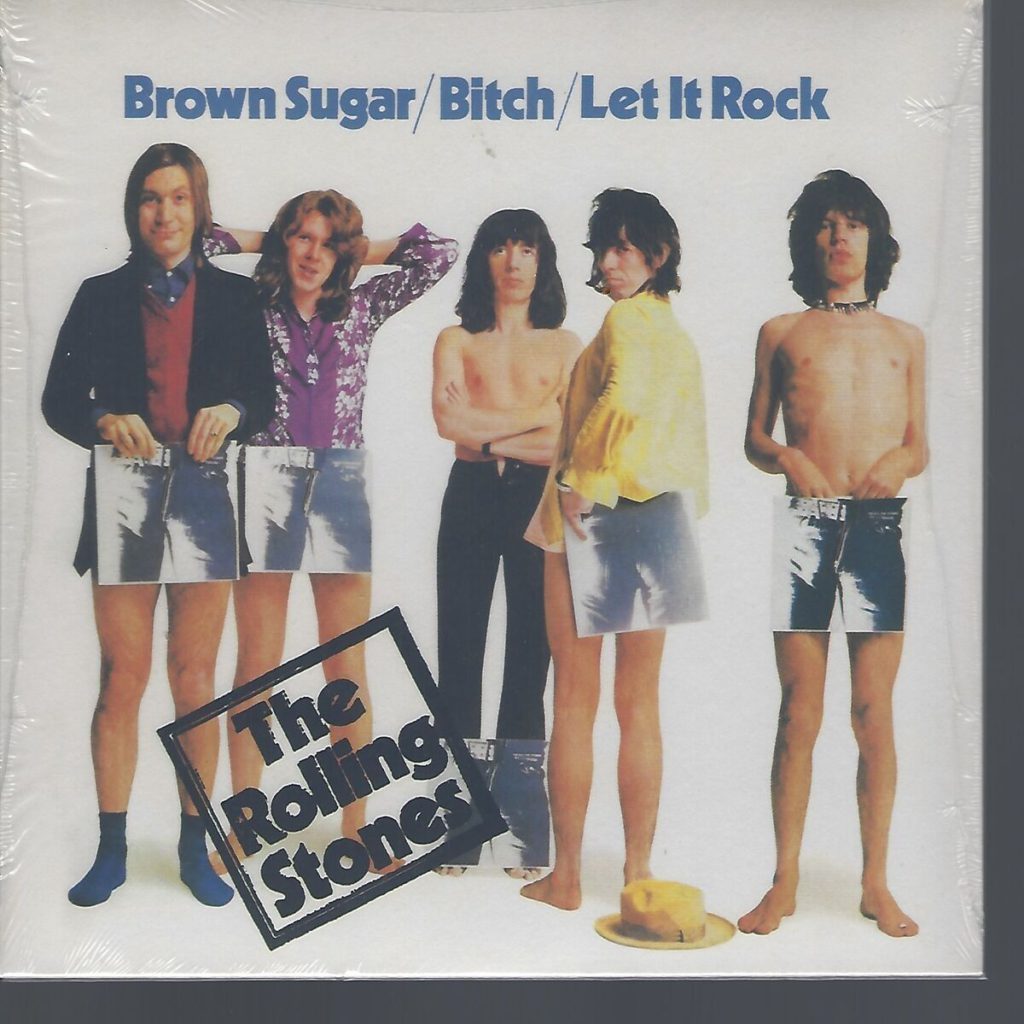
The Stones dropped this slavery-referencing track like they were playing with matches near gasoline. Stations pulled it instantly. The song marches through interracial relationships and exploitation with zero subtlety.
Even Jagger later admitted this went too far—from a man who built a career shocking people. The track remains the awkward guest at rock history’s table, forcing uncomfortable talks about racism. The Stones were no strangers to pushing boundaries, with their controversial album covers often causing as much stir as their music.
6. I Am Woman – Helen Reddy (1972)
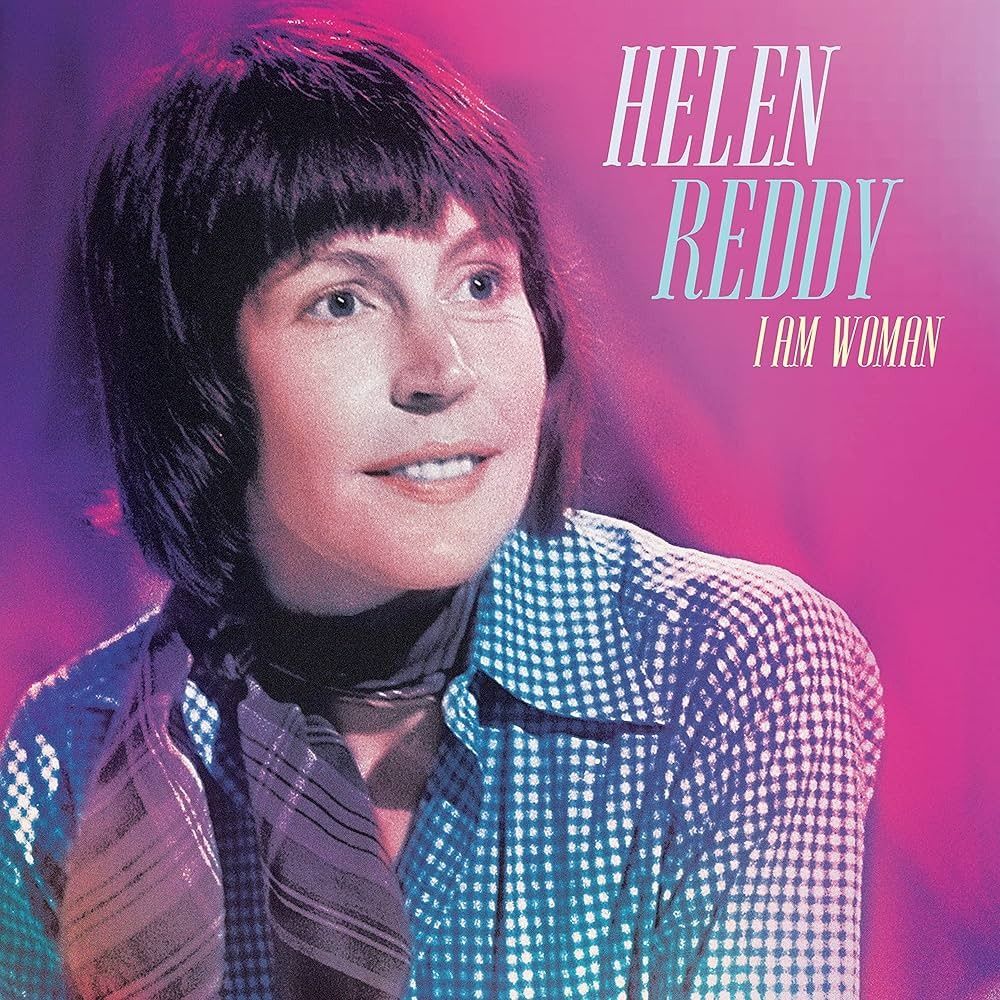
Reddy didn’t just sing about women’s power—she launched it into the boys’ club of radio. Men in control booths couldn’t handle lyrics about female strength without technical difficulties appearing.
This anthem bulldozed through industry pushback to become a movement soundtrack. Reddy’s Grammy with God-is-female comments made conservatives faint. The song created unity among women told their stories didn’t matter.
5. Jailhouse Rock – Elvis Presley (1957)
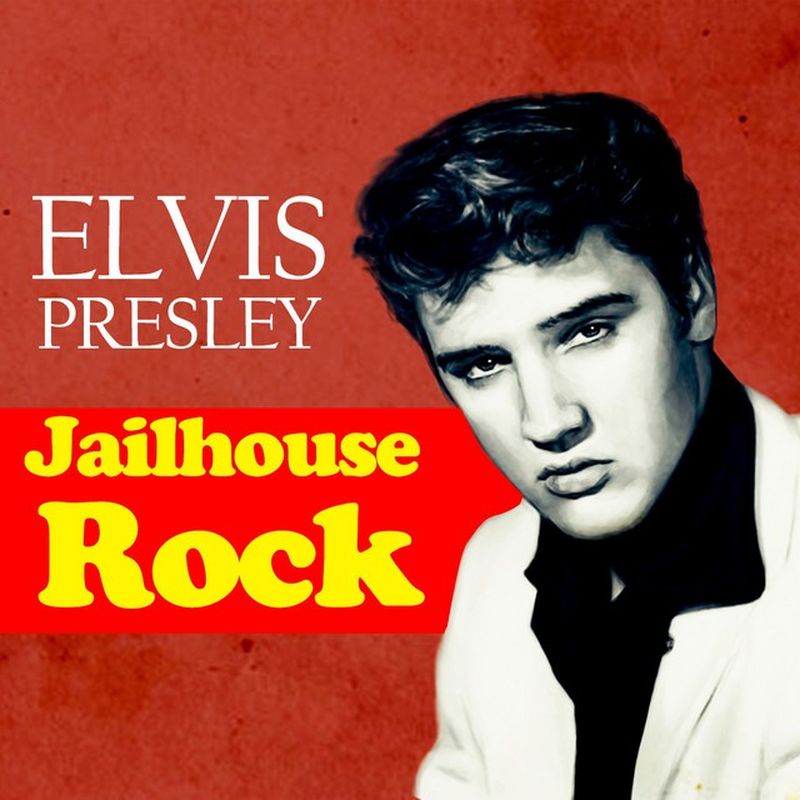
Elvis’ hip moves had already scared parents, but this prison-themed anthem shocked a new generation years later. Officials claimed it glorified criminal behavior when they really feared youth questioning authority.
The ban just made it cooler. Forbidden music always attracts curious listeners. The panic over a mainstream artist shows how even simple rock can threaten systems built on blind obedience.
4. God Save the Queen – Sex Pistols (1977)

Nothing says punk like DJs physically destroying your record. The Pistols timed their royal takedown during Elizabeth II’s Silver Jubilee celebration. The establishment responded with a blackout that makes today’s cancel culture look amateur.
Each ban created new fans. It’s like the Kendrick Lamar effect—censorship turns provocative art into landmark culture. The powers only boosted the very message they wanted to silence.
3. Money – Pink Floyd (1973)
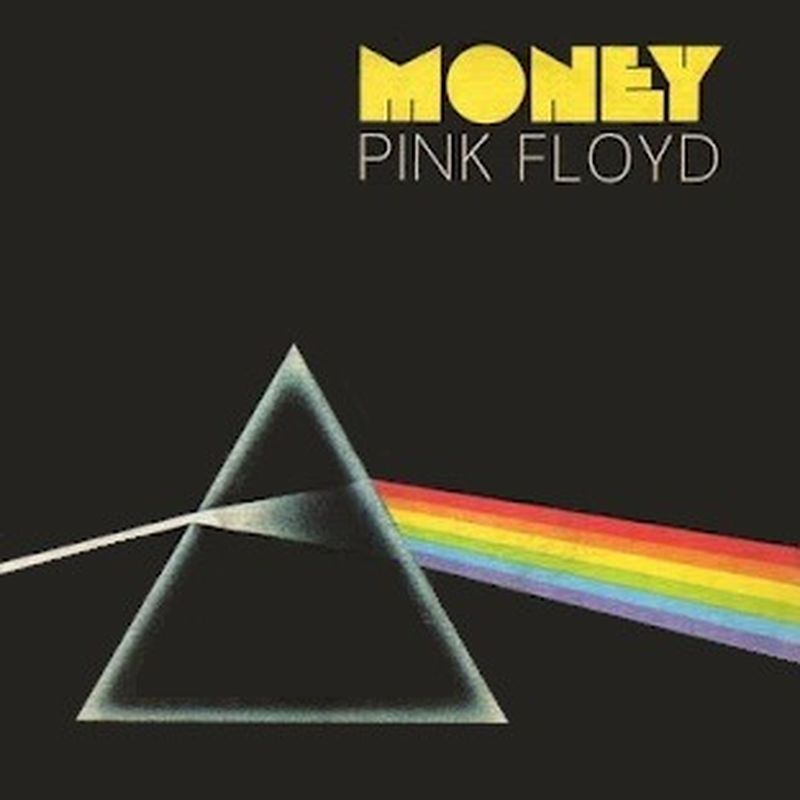
South African apartheid officials and American conservatives united against this song—showing that nothing brings enemies together like fear of economic questions. Floyd’s unusual time signature wasn’t as scary as suggesting wealth corrupts.
The track’s cash sounds became the anthem for greed while making Pink Floyd obscenely wealthy. Like seeing crypto bros share anti-capitalist memes, the song’s success highlighted the system it criticized.
2. Lola – The Kinks (1970)
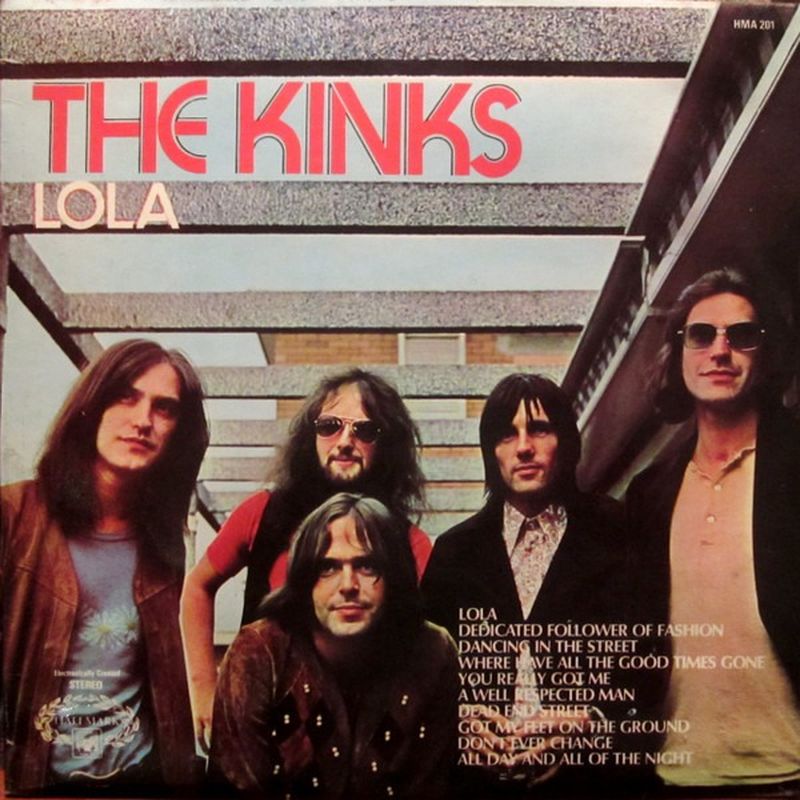
Nothing freaks out the system like catchy songs about fluid identity. The Kinks wrapped transgender themes in irresistible guitar hooks. BBC censors used product placement rules to block it, not its actual content.
This song performed cultural surgery with perfect timing, decades before mainstream media discussed trans lives. While officials worried about soda brands, Davies smuggled in revolutionary ideas disguised as pop.
1. Street Fighting Man – The Rolling Stones (1968)
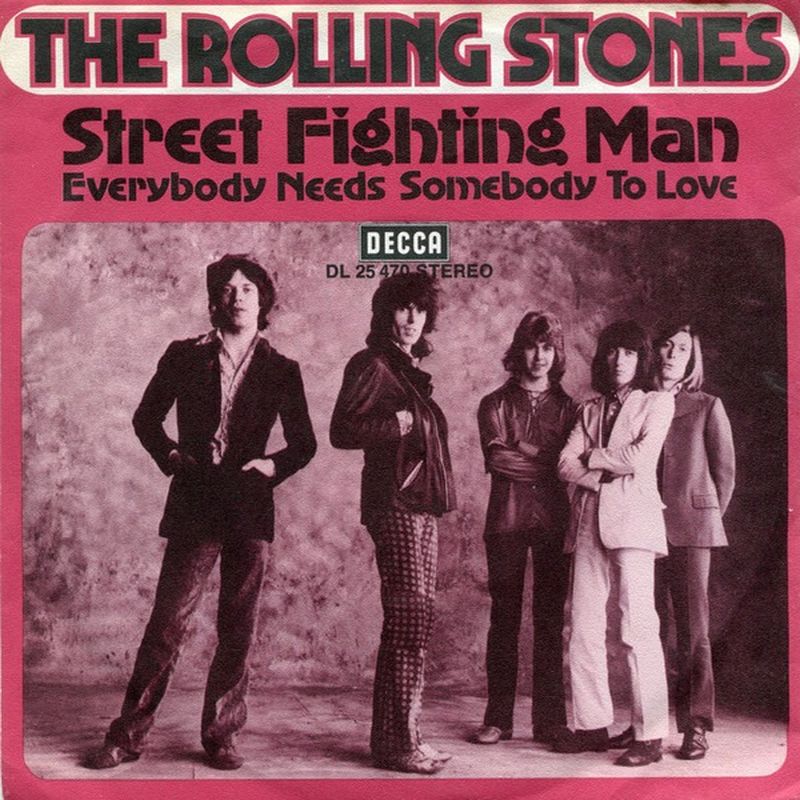
The Stones made the ultimate protest soundtrack, and stations panicked like parents finding their kid’s secret vape. Released when cities worldwide erupted, authorities feared listeners would turn into revolutionaries.
The ban failed spectacularly. Refused airplay created underground listening parties where the message spread anyway. For all these songs, each ban created new fans. It’s like the Kendrick Lamar effect—censorship turns provocative art into landmark culture. The powers only boosted the very message they wanted to silence. This pattern of controversy leading to greater popularity continues throughout the most controversial songs in music history, proving that attempting to suppress music often amplifies its cultural impact.




